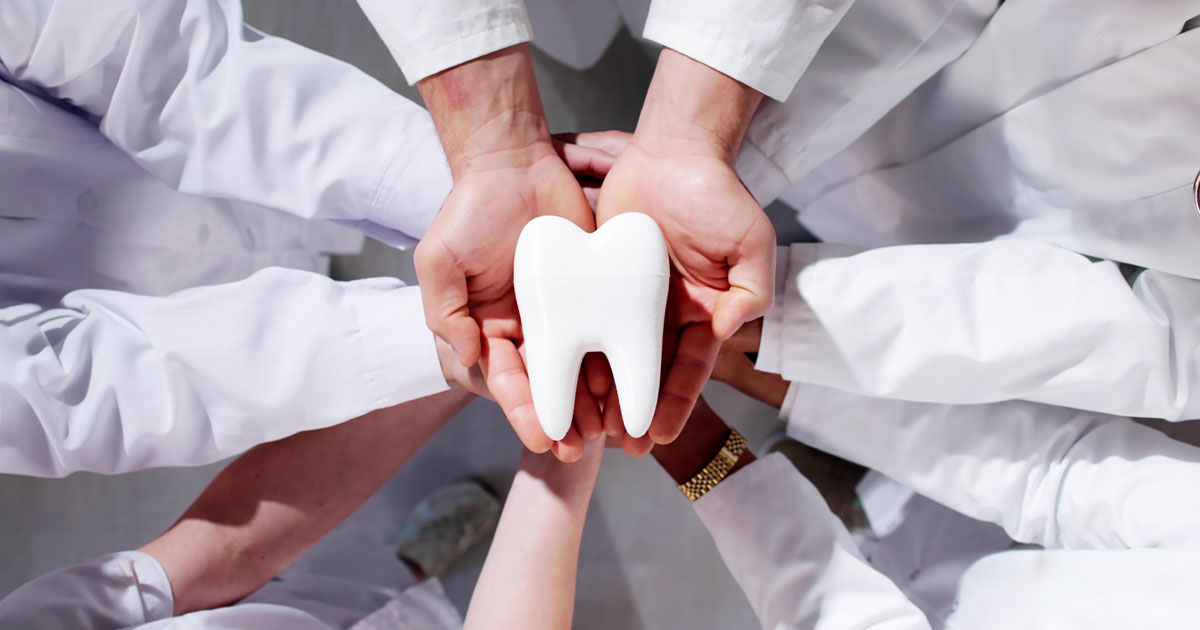The success of a dental practice hinges not only on the expertise of its dentists but also on the collective strength and development of the entire team. In private practice, where patient expectations and regulatory standards are high, investing in team development is crucial for delivering exceptional care, ensuring patient satisfaction, and fostering a positive work environment. Here, Medenta Business Development Manager, Lesley Turner, offers some hints on how to achieve this.
Ensuring Patient Care and Satisfaction
At the heart of any successful dental practice is the quality of care provided to patients. A team equipped with the latest knowledge and skills, can help to ensure patients get the highest standards of care. Encouraging your staff to stay on top of their continuous professional development (CPD) can help them to keep up to date with the latest advancements in dental techniques, technologies, and best practices. Having staff who are obviously on top of their game not only improves the quality of treatments but also boosts patient confidence and satisfaction.
This is the case right across the team. For instance, making sure dental hygienists and nurses receive regular training in all the latest thinking and techniques can help them to provide more effective and efficient care. This in turn leads to better patient outcomes and a higher level of trust in the practice. Also, having confidence in their level of knowledge and skills enables them to handle patient inquiries and concerns more effectively, which can contribute to a positive patient experience.
Compliance
The General Dental Council (GDC) and the Care Quality Commission (CQC) set stringent standards for dental practices, including mandatory CPD as a condition of dental professionals maintaining their registration. By prioritising team development, you can ensure you comply with these regulations, avoid potential legal issues, and maintain your reputation.
Allowing staff to attend regular training sessions, workshops, and seminars can help the team stay abreast of changes in regulations and industry standards. Adopting a proactive approach not only ensures your team remains compliant but also demonstrates a commitment to continuous improvement and staff development. As staff retention becomes more important, showing commitment to helping your team develop their skills and experience can help to keep good team members with you.
Fostering a Positive Work Environment
Although a dental practice is a place of work, it’s also a community where collaboration and mutual support are essential. Fostering a positive work environment where team members feel valued, motivated, and engaged is an investment that will pay dividends. If employees perceive that their growth and development is a priority for their employer, their job satisfaction is likely to increase along with their loyalty to the practice.
Team-building activities, regular feedback sessions, and opportunities for career advancement can all contribute to a supportive and positive work culture. Reward and recognition of achievements, both individual and team, also go a long way towards boosting morale and job satisfaction. In addition, encouraging open and respectful communication will help to produce a positive working environment. Happy teams are more motivated and productive than teams with low morale and poor, or disrespectful communication so it pays to build the right work culture.
Improving Efficiency and Productivity
A well-trained team that works seamlessly together can streamline operations, reduce waiting times, and improve the overall patient experience. Cross-training team members in different roles and responsibilities can increase flexibility and help the practice to run smoothly. This comes into its own during busy periods or when you’re experiencing staff absences.
For example, dental nurses who are trained to carry out an admin role can help with things such as billing and patient communication, which can help to keep the practice running at times of stress. Likewise, receptionists who have an understanding of basic dental procedures can help to schedule appointments appropriately which can help the clinical team. They can also provide more accurate information to patients, increasing confidence in the running of the practice.
Keeping up with technology
Dental technology is advancing at pace these days. From digital imaging and CAD/CAM systems to laser dentistry and teledentistry, it’s important to stay up to date with these developments. Allowing your team to learn about and adapt to these technological changes helps your practice to remain competitive and to offer the latest treatments to patients. Investing in training your team on new technologies means your practice can offer a wider range of services, attract new patients, and retain existing ones.
Developing your team is not just about compliance; it’s an investment in the future success of the practice. By having a team that confidently employs all the latest skills and technology you can ensure great patient care, while meeting your regulatory requirements, and foster a positive work environment all at the same time. Making team development a priority means both the practice and your patients win and can help achieve long-term growth and sustainability in an increasingly competitive industry.


